Revolutionising the Real Estate Process with Web Scraping in 2023
Simran Sarin
Revolutionising the Real Estate Process with Web Scraping in 2023
In the real estate industry, web scraping is particularly useful for gathering data on properties, such as their location, size, price, and amenities, from online listings and databases. This data can then be used by professionals to conduct market research, analyse trends, and make informed decisions about buying, selling, or renting properties. Web scraping has thus become a valuable tool for those looking to stay competitive in the fast-paced and ever-changing real estate market.
Benefits of Using Web Scraping in Real Estate
- Access to a large amount of data: With web scraping, real estate professionals can extract large amounts of data from multiple sources quickly and efficiently.
- Cost-effectiveness: This practise eliminates the need for manual data collection, which can be time-consuming and costly. By automating the process, real estate professionals can save time and money while still obtaining the data they need.
- Competitive advantage: It helps collect and analyse data by which real estate professionals can gain a competitive advantage in the market. They can identify opportunities before their competitors, analyse trends and patterns to make informed decisions, and optimise their pricing strategies based on real-time market data.
- Improved decision-making: Web scraping provides real estate professionals with accurate and up-to-date data, allowing them to make more informed decisions about buying, selling, or renting properties.
What is Web Scraping?
Web scraping refers to the automated extraction of data from websites using specialised software tools. This technique has become increasingly popular in recent years due to the wealth of information available online and the growing demand for data-driven decision-making in various industries.
Tools and Technologies Used in Web Scraping
- Python: Python is a widely used programming language for web scraping. It has several libraries like BeautifulSoup, Scrapy, and Requests, which make it easier to extract data from websites.
- Web Scraping Tools: Various tools like Octoparse, ParseHub, and WebHarvy can be used to extract data from websites without any coding knowledge.
- HTML and CSS: A basic understanding of these languages is essential for web scraping as it helps in identifying the location of data on a website.
- XPath: XPath is a language used to navigate through the HTML structure of a website to extract specific data. It is commonly used with tools like Scrapy and can be learned with some basic coding knowledge.
- API: Some websites offer APIs (Application Programming Interfaces) that allow developers to extract data from their websites in a structured way. APIs often require an authentication key and are not available for all websites.
- Proxies: Proxies are used to mask the IP address of the scraper and avoid detection or blocking from the website being scraped.
How Web Scraping Can Revolutionise Real Estate
- Identifying Investment Opportunities: By scraping data from online real estate listings and databases, investors can quickly identify investment opportunities in emerging markets.
- Analysing Market Trends: This method can be used to extract large amounts of data from multiple sources, which can be analysed to identify patterns and trends in the real estate market.
- Generating Leads: Web scraping can be used to extract contact information from websites, such as emails and phone numbers, which can be used to generate leads for potential buyers or sellers.
- Monitoring Competition: It can be used to monitor the competition and identify their pricing strategies, marketing tactics, and property listings.
- Improving Customer Service: This can be used to extract data on customer behaviour, such as what they are searching for, what properties they are interested in, and what amenities they prefer.
Insider Tips and Tricks for Effective Web Scraping in Real Estate
- Identify Reliable Sources: It is important to identify reliable sources of data for web scraping. Look for websites that have accurate and up-to-date information and a large amount of data.
- Set Up Automated Processes: Automating the web scraping process can save time and resources. Set up a schedule to run the scripts automatically, so you can have access to up-to-date data at all times.
- Avoid Legal Pitfalls: Web scraping can be a legal grey area. It is important to comply with the website's terms of service and respect its privacy policies. Also, be aware of copyright laws and do not scrape copyrighted material.
- Clean and Organise Data: The data extracted from websites may not be in a format that is easy to use. Use tools like Excel or OpenRefine to clean and organise the data. This will make it easier to analyse and use for decision-making.
- Monitor and Test: Monitor the web scraping process regularly to ensure it is running smoothly and as expected. Test the data to ensure it is accurate and reliable. Adjust as needed to improve the accuracy of the data.
- Use Proxies: Use proxies to avoid being detected or blocked by websites. Proxies can mask the IP address of the scraper, making it more difficult for websites to identify and block the scraper.
Importance of Ethical Web Scraping Practices
Here are some reasons why ethical web scraping practices are important:
- Respect for Privacy: Websites have terms of service and privacy policies that outline how their data can be used. Ethical web scraping practices involve complying with these policies and not scraping personal information that could violate privacy laws.
- Fairness: Ethical practices involve respecting intellectual property laws and not scraping copyrighted content without permission. It also means not scraping competitor data for unfair competition.
- Transparency: It involves being transparent about the purpose of the scraping and the data being extracted. It is important to provide clear and accurate information about what data is being scraped and how it will be used.
- Sustainability: Unethical means can lead to websites blocking or banning scrapers, which can make it difficult to obtain data in the future.
- Legal Compliance: It involves complying with local laws and regulations, such as copyright laws, privacy laws, and data protection laws.
Real-Life Examples of Web Scraping in Real Estate
- Zillow: Zillow is a popular real estate website that uses web scraping to gather data from multiple sources to provide users with accurate and up-to-date information on properties.
- Redfin: Redfin is another real estate website that uses web scraping to provide users with accurate and up-to-date information on properties.
- Mashvisor: Mashvisor is a real estate investment platform that uses web scraping to provide investors with data on investment properties.
- PropStream: PropStream is a real estate investment platform that uses web scraping to provide investors with data on distressed properties.
- Rentometer: Rentometer is a real estate platform that uses web scraping to provide landlords and property managers with data on rental rates.
Web scraping has truly shaped the real estate industry of today. It has helped the realtors understand which properties can extract the best profit (in terms of rents and selling values). Scraping method also advise the best properties in specific areas.
Conclusion
Web scraping is beneficial for the real estate industry in several ways. It helps in competition analysis, prediction of market trends, performing sentiment analysis, and monitoring vacancy rates. If you are a property dealer then web scraping can help boost revenue within a short time space. Hire the best web scrapers and make this process smooth and effective!





 info@triyock.com
info@triyock.com